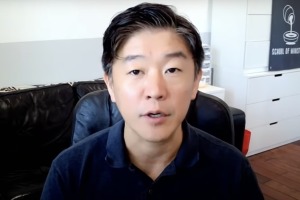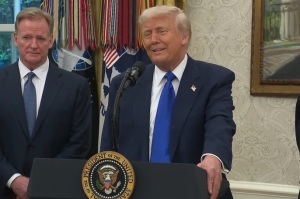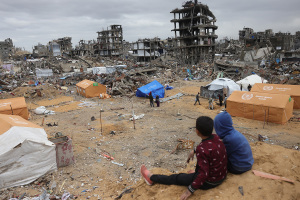Obama Urges Iranian President to Release Pastor Saeed
In the first communication between the leaders of the United States and Iran since 1979, President Barack Obama on Friday spoke to President Hassan Rouhani by phone and called for the release of American Pastor Saeed Abedini, who is in an Iranian prison because of his Christian faith and has been tortured.
Obama, the first American leader to speak with an Iranian president since the Islamic revolution, noted the nation's concern about three American citizens who have been held within Iran in his 15-minute conversation with the Iranian president.
The three include the missing U.S. citizen Robert Levinson, Pastor Saeed Abedini, and alleged CIA spy Amir Hekmati, according to Fox News. Obama "noted our interest in seeing those Americans reunited with their families," a senior Obama Administration official was quoted as saying.
Rouhani, who spent the last few days at the U.N. General Assembly, was on his way to New York's John F. Kennedy International Airport when Obama called him at about 2:30 p.m. on Friday. The conversation was focused mostly on the nuclear issue.
This is the first time that Obama has spoken out about the imprisonment of Saeed. Pastor's wife, Naghmeh, said it was "the most encouraging news I have heard since Saeed was imprisoned one year ago."
"I am very grateful to President Obama for standing up for Saeed and for the other Americans who are held captive in Iran," Naghmeh added. "This development is truly an answer to prayer. I urge President Rouhani, as I have done throughout this week, to release Saeed so he can return to our home and our family in the United States. In recent days, Iran has released 80 prisoners being held because of their beliefs. I pray that we can add Saeed to that list very soon."
"After 35 years of great tensions between Iran and the United States, and very numerous issues that persist in the relationship, a meeting of the presidents for the first time in this period would naturally come along with certain complications of their own," Rouhani said at a press conference.
"We're very encouraged by President Obama raising the illegal imprisonment of American Saeed Abedini with Iranian President Rouhani," said Jordan Sekulow, executive director of the American Center for Law and Justice, which represents Naghmeh and their two children. "President Obama's call to President Rouhani to release Saeed so he can be reunited with his family is a significant step forward in this critical case."
The State Department has repeatedly condemned Iran for holding Pastor Saeed, and more than 100,000 people have written letters to President Rouhani for Saeed's release.
Naghmeh has spoken at the United Nation to seek member states' action on behalf of her husband.
Saeed – who grew up in Iran before converting to Christianity at the age of 20 – traveled with his family back and forth between Iran and the U.S. several times over the past few years to meet his family and for Christian work. During one such trip in 2009, he was detained by Iranian officials and interrogated for his conversion. While he was released with a warning against engaging in underground church activities, he was once again arrested last July while working on a non-sectarian orphanage project.
Saeed was sentenced to eight years in prison earlier this year for endangering "national security," but the ACLJ believes the punishment has more to do with Saeed's Christian faith.
Rouhani's predecessor, Mahmoud Ahmadinejad, who was president from 2005 until last month, became authoritarian and began to curtail civil liberties following mass protests, known as the Green Revolution, over his claimed victory in the 2009 elections that were believed to be rigged. Persecution of Christians and other religious minorities was also part of Ahmadinejad's attempt to tighten control over all aspects of people's lives in the face of domestic insecurity.
It is not clear if Rouhani, a former commander of the Iranian air defenses, has much say in matters of national security, which is the domain of Iran's supreme leader Ayatollah Ali Khamenei. Christians in Iran are persecuted under the garb of "national security."





























